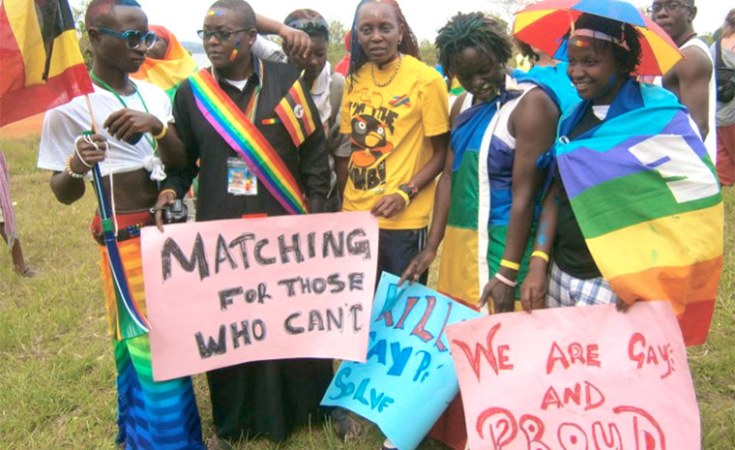In the run-up to the expected judgement challenging section 162 and 165 of the Penal Code of Kenya that outlaws same-sex relationships, I am reminded of the Zulu South Africans who have a positive way of greeting. They say "Sawabona" meaning "I see you". The expected response is "Ngikhona", which means "I am here".
Do we really see the LGBTQI community who continue to face human rights violations due to archaic, retrogressive laws?
As a medical doctor and a human rights activist, I do my best to see them, especially as homophobia and transphobia contribute to the social and health inequalities and disparities. The World Medical Association says that any form of stigma, discrimination and criminalization of the LGBTQI should be condemned, and I agree.
When Felix walked to my clinic for HIV treatment, I knew that he was not my everyday patient. Aside from carrying the burden of a pathological disease, he was severely depressed owing to the fact that he had lost his job, his family and his bigger social circle. His crime? He came out gay to his family and due to his high levels of stress, his productivity at work plummeted and he lost his job. While medical school training did not extend to addressing the social exclusion and the other forms of stigma he faced, I acknowledged the impact these factors had on his health outcome.
Even though I try to do my part for LGBTQI inclusion, individuals like me can only do so much within the scope of antiquated laws. These laws need to change.
Kenya is among the 38 former colonies of Great Britain that continue to practice the inherited law prohibiting same-sex relations. Despite the British government decriminalizing same sex relationships and criminalizing any rights violations, many states colonized by the British Empire have been slow or have refused to reform their own versions of these laws. The Prime Minister of the UK Theresa May deeply regrets the legacy left by the British government on anti-gay laws.
The continued existence of these laws legitimizes human rights violations perpetrated by the state and police against the sexual minority, including harassment, arbitrary arrest, evictions, limitations in freedoms of association, limitations in access to social services like health and all forms of violence including sexual abuse. Other recent effects of these violations have resulted in forced immigration, and Kenya, seen by some as the "least bad option," has witnessed an influx of refugees from the LGBTQI communities seeking asylum.
The ongoing criminalization of same-sex relationships is contrary to scientific, evidence-based data from the International Classification of Diseases and Related Health Problems (ICD-11) which has since declassified sexual orientation from mental disorders. Governments would rather allow religious institutions to dictate the extent to which human rights are accepted. This influence clearly evidenced by the heavy funding by evangelists during passing of the anti-homosexual bill in Uganda and by the current respondents in the Kenyan case led by the Kenya Christian Professional Forum.
Governments in Africa should not continue allowing the burden of religious conscience to dictate the freedoms and rights of their citizenry.
The global conversation around achieving Sustainable Development Goals, including the applicability of the buzz phrase "leaving no one behind", becomes problemtatic when LGBTQI global populations are excluded from development agendas. For instance, how are we to tackle poverty and access to decent work and economic growth when trans persons cannot access quality education and are often denied jobs, or when gay people unlawfully lose their jobs because of their identity and sexual orientation, ultimately excluding them from accessing loans for development?
A World Bank report on the economic cost of homophobia echoes the above by measuring the losses both at an individual (micro) and at an economic level (macro). At the individual level, homophobia leads to less education, lower productivity, lower earnings, more poverty, poor health and shorter lives while at the economic level, the implications of homophobia include higher healthcare costs and higher social program costs.
Whether it's denial of access to health or to education and meaningful jobs, LGBTQI people are not requesting any special rights, but just the right enshrined within most constitutions. We have a responsibility to the LGBTQI community to see them and to acknowledge that they are here – this includes Kenya's highest court. I urge them to make the right decision.
Dr Bosire is the Co-Executive Director of UHAI-EASHRI, a non-for-profit activist led, indigenous, peer-led community grant making organization that makes grants for the Eastern Africa region - Kenya, Uganda, Ethiopia, Tanzania, Burundi, Rwanda, Ethiopia and Democratic Republic of Congo - to defend and advance the rights and well-being of LGBTQI and sex workers within the region.


